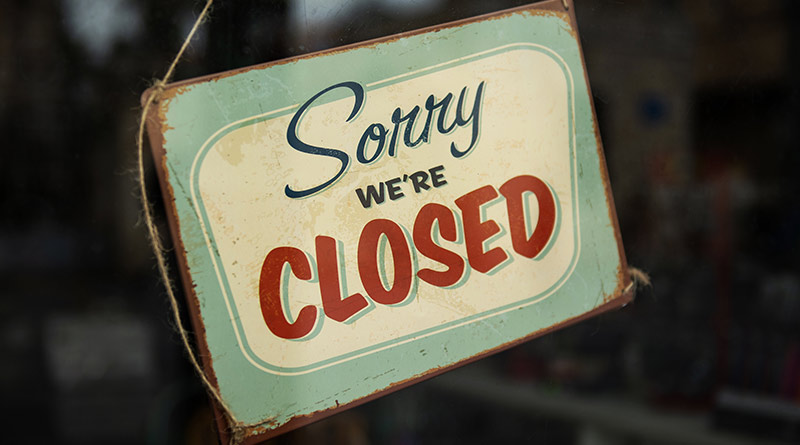Hospitality Loses One In 18 Sites In Latest 12 Months, As Costs Crisis Bites

In the latest 12 months, Britain has lost around one in 18 of its licensed premises – that’s 5,736 pubs, hotels, restaurants, bars and cafes – the new Hospitality Market Monitor from CGA by NIQ and AlixPartners reveals.
The current closure rate means that about 5% of the market is closing annually and that since March 2020, the market has seen an astonishing figure of close to 15,000 outlets close – as measured by on-premise licenses.
In the latest quarterly analysis, Britain’s number of licensed premises dipped by 1.1% (in the three months from April 2023 to June 2023). The drop represents 1,139 net closures in the second quarter—equivalent to 12.5 per day. It follows relentlessly high costs for businesses and consumers alike, which have sent many venues that were already weakened by COVID-19 to the wall.
Smaller businesses have borne the brunt of closures, and the independent segment has shed 7.0% of outlets in the last 12 months—in sharp contrast to fractional growth of 0.1% in the managed hospitality sector.
However, the Hospitality Market Monitor also reveals signs for cautious optimism. Net closures across the first half of 2023 (1,895) were less than half the number seen in the second half of 2022 (3,841), and some units vacated recently have been repurposed by other operators including emerging groups. The casual dining segment is now 5.6% smaller than 12 months ago, but food-led pubs (down 2.9%), high street pubs (down 3.1%) and community pubs (down 4.1%) have all recorded notably fewer closures than the sector as a whole.
Britain’s city centres are meanwhile showing growing resilience, with a 4.2% net fall in licensed premises in the 12 months to June 2023—a better figure than the drops of 5.9% and 5.4% in large and small towns respectively. It follows a steady return of commuters and visitors to major hubs, and an increase in residents in central areas of many of the country’s largest cities in recent years.
Karl Chessell, CGA by NIQ’s business unit director – hospitality operators and food, EMEA, said:
“It’s been another tough quarter for hospitality, with soaring energy, food and labour costs squeezing businesses’ margins and inflation and interest rate rises sapping consumer confidence. Against that backdrop, managed groups have been impressively resilient in many segments and areas, and there are welcome signs that city centres in particular are back to their pre-COVID vibrancy. More venue closures are sadly inevitable while costs remain so high, but the outlook for well-resourced, distinctive and customer-focused groups remains good.”
Graeme Smith, AlixPartners’ managing director, said:
“It is clearly a very difficult time for some hospitality businesses right now, as these latest numbers illustrate. But part of the story here is the remarkable resilience and robustness of large swathes of the market in the face of a challenging, high-inflation environment.
“Despite the current cost-of-doing-business crisis, which has served to squeeze profitability, suppress investment and, in the worst scenarios, challenge viability, a number of segments of hospitality and leisure are holding up extremely well. And this, in a market that was already challenged and in recovery mode after the events of the past three years.
“While every business lost is a tragedy, many more are managing to navigate their way through. We are all waiting for this margin-compression cycle to turn, and when that switch comes, the market will, from an investment and lending perspective, right itself quickly. Investors will return, with businesses that have delivered stability and are able to demonstrate growth, top of the agenda.”
Kate Nicholls, Chief Executive of UKHospitality, said:
“These figures clearly demonstrate the challenges faced by hospitality businesses. In particular, smaller independent businesses, who have borne the brunt of the ongoing challenges of soaring costs, workforce issues and more. Alongside the increased rate of business failure across the independent market, there has been an industry-wide freeze on investment and new openings due to the current crisis, providing a very constrained short-term outlook.
“We can draw hope from this, though, as when these challenges do begin to subside, the longer-term prospects will become increasingly more positive, as demand continues to remain stable which will lead to increased growth prospects. It’s vital that the sector, especially including our smaller and independent venues, receives as much support as it can get, if it’s going to bounce back and experience that positivity, and play a key part in driving the recovery.”
